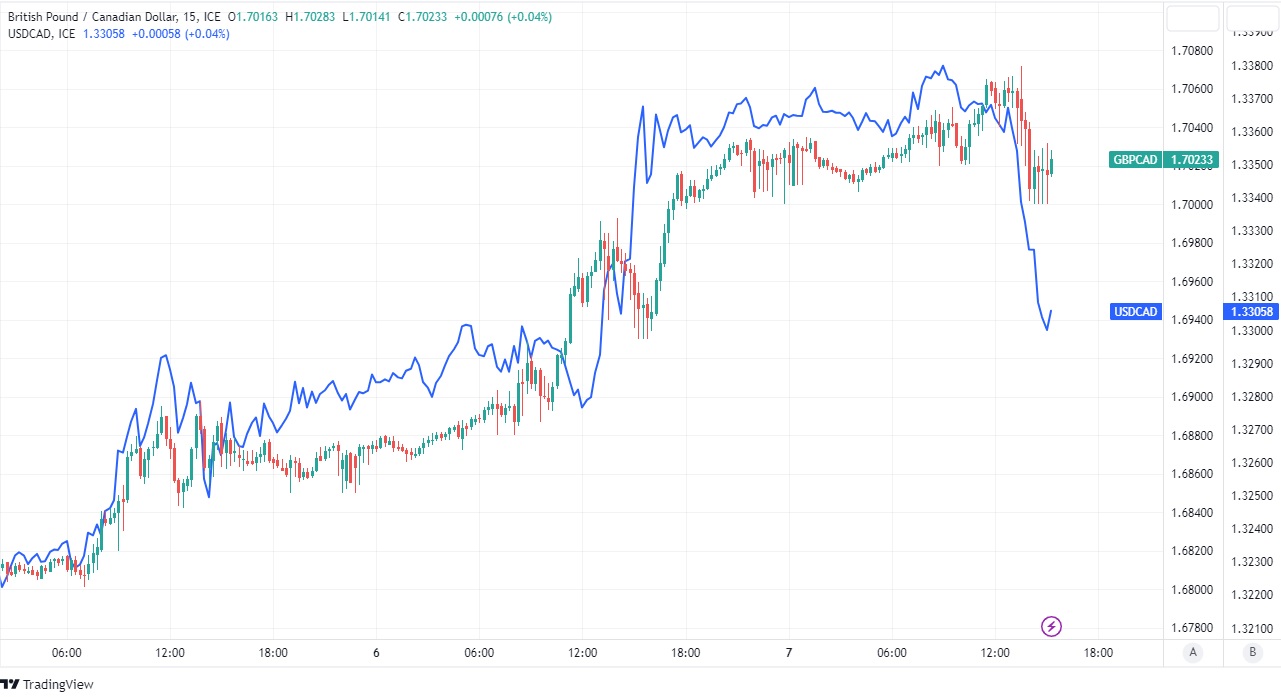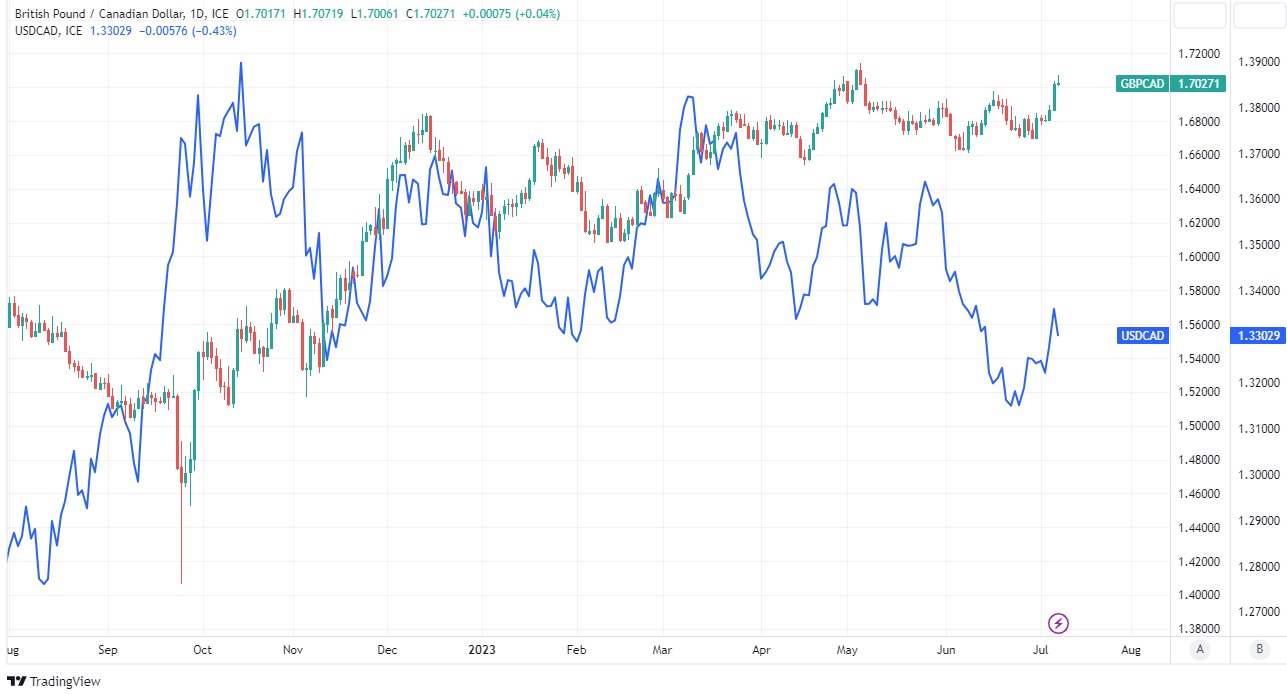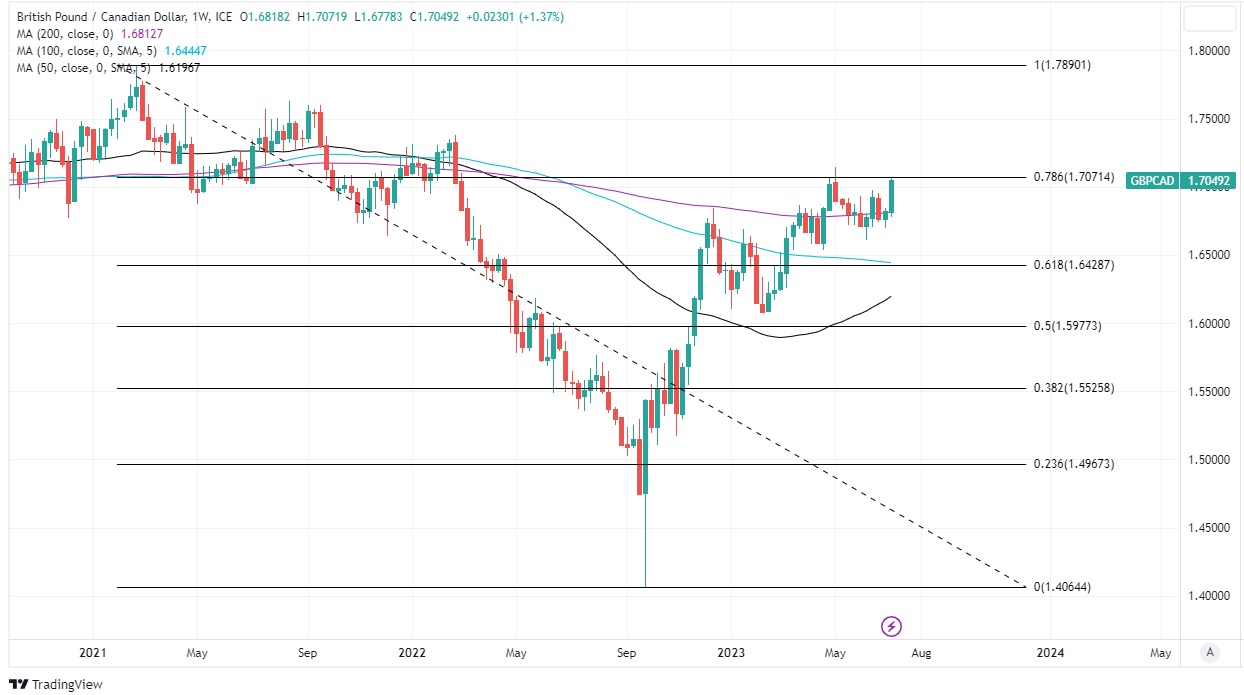 The Pound to Canadian Dollar rate experienced a decline from its recent highs in the final session of the week following a report by Statistics Canada. The report revealed a rebound in employment and a moderation of pay growth, which could help alleviate concerns about inflation for the Bank of Canada (BoC).
The Pound to Canadian Dollar rate experienced a decline from its recent highs in the final session of the week following a report by Statistics Canada. The report revealed a rebound in employment and a moderation of pay growth, which could help alleviate concerns about inflation for the Bank of Canada (BoC).
Rebound in employment exceeds expectations, but some concerns remain
According to the report, Canadian employment increased by approximately 60,000 in June, fully reversing an earlier decline of 17,300. The figure exceeded the consensus forecast of a 20,000 increase. However, certain details of the report were less favorable for workers, although they were welcomed by the Canadian dollar (Loonie) and likely also by the BoC. Part-time employment saw an estimated decline of 49,800, and an increase in participation and the number of unemployed led to a rise in the unemployment rate from 5.2% to 5.4%.
Economist highlights signs of loosening labor market conditions
Andrew Grantham, an economist at CIBC Capital Markets, commented on the employment gain, stating that despite the strong headline figure, there are indications of a loosening in labor market conditions within the job report. However, he added that this may not be sufficient to prevent the Bank of Canada from considering another interest rate hike as early as next week.

Pay growth slows, aligning with the Bank of Canada’s objectives
Notably for the Bank of Canada, the growth in average hourly pay decreased from 5.1% to 3.9% for the year ending in June. This marked the slowest pace since May 2022. Reducing pay growth has been an important objective for the Bank of Canada in its efforts to bring inflation back to its 2% target. Therefore, the data on Friday further supported the bank’s goals, especially since most inflation measures in the May report fell more than expected.
Interest rate decision next week remains uncertain
Ahead of the July interest rate decision next Wednesday, derivative markets suggest a higher likelihood of the cash rate increasing from 4.75% to 5%. However, economists’ forecasts are divided, making the decision a wild card. While some indicators point to a softening economic backdrop, such as higher consumer delinquency rates, lower job openings, and slowing wage growth, the Bank of Canada had likely planned for more than one interest rate hike following a pause in increases last month. Economic growth data and stable core inflation readings have not been weak enough to derail those plans.

Different views on rate hike timing among local firms
RBC Capital Markets retains its forecast for a cash rate increase next week. However, other local firms, including CIBC and National Bank of Canada, are less certain about the Bank of Canada’s intentions to raise rates again so soon after pausing the rate cycle last month. The governing council’s summary of last month’s deliberations suggested that future rate increases would depend on the economic data, and the current figures may fall short of prompting further action.

Consideration of Canada-US interest rate differentials
Stéfane Marion, chief economist and strategist at NB Financial Markets, notes that the tightening of Canada-US interest rate differentials was a major driver of the Canadian dollar’s appreciation in the first half of the year. With inflation trending downward in Canada, it is unlikely that the Bank of Canada would want to outpace the US Federal Reserve in potential summer rate hikes.




